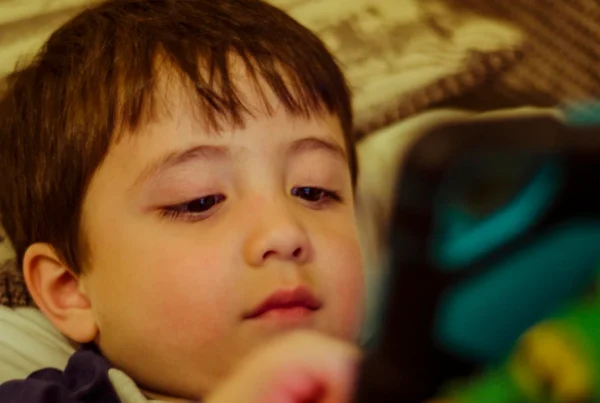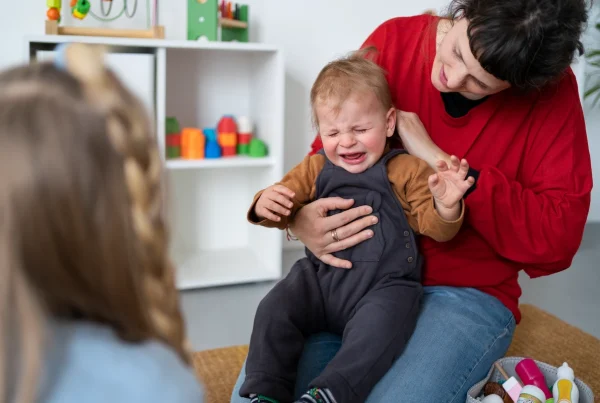Deciding when to start preschool is one of the first big educational choices parents face. For some families, the decision feels easy; your child seems eager to explore, talk, and learn. For others, the choice comes with more uncertainty. Are they really ready? Should we wait another year?
The truth is, preschool readiness is about much more than a number on a birthday cake. While age is a factor, a child’s social, emotional, and physical development all play an important role in determining whether they are ready to thrive in a preschool environment.
This decision is also about trusting God’s timing and seeking His wisdom. Every child is wonderfully made, and their developmental journey is unique. As parents, our role is to prayerfully discern what’s best for our child; not to compare them with others, but to understand and support their growth at their own pace.
How Do You Know a Child is Ready For Preschool?
Preschool is an exciting stage where children begin to explore early literacy, numeracy, cooperation, problem-solving, and confidence. But knowing whether a child is ready goes beyond looking at age alone.
A child is often ready for preschool if they can:
- Handle brief separation from parents or caregivers.
- Follow simple routines and instructions, such as tidying up or sitting for circle time.
- Communicate basic needs with words or gestures.
- Interact positively with peers, whether through sharing, playing, or taking turns.
- Show curiosity and interest in learning new things.
When these skills are in place, children are more likely to enjoy preschool, engage with their peers, and build a lifelong love of learning. On the other hand, starting too early may cause unnecessary stress for both the child and parents.
To help parents see the whole picture more clearly, the next section provides a practical checklist that highlights the key areas of preschool readiness.
Preschool Readiness: A Parent’s Checklist
Instead of looking for a single “yes” or “no” answer, you can use this preschool readiness checklist as a guide. The checklist highlights key areas of development and also provides guiding questions that parents can ask themselves to better understand their child’s readiness for preschool.
Remember, children grow at their own pace. Your child may excel in some areas and still be developing in others. This is completely normal, and it’s not necessary for every item on the checklist to be “perfect.”
Preschool itself is designed to be a supportive environment where children continue building these essential skills through guided activities, interactions with peers, and encouragement from teachers.
1. Social and Emotional Development
One of the clearest indicators of preschool readiness is how well a child interacts with others and begins forming social skills.
“Can your child play cooperatively, take turns, and share toys during group activities?”
“Are they able to separate from you without severe anxiety, even if they need a little reassurance at first?”
Preschool often means spending a few hours without parents, so being comfortable around other adults, such as teachers, church leaders, or caregivers, can help ease the transition.
It’s also worth asking whether your child can manage basic emotions in a group setting. Tantrums and meltdowns are normal at times, but preschool-ready children should be starting to express emotions with words, listen to guidance, and recover from frustration with gentle help.
These early steps in emotional and social development prepare a child for classroom routines and structured learning environments.
Read more: 5 Types of Preschool Curriculum: What Parents Need to Know
2. Cognitive and Language Skills
While preschools are designed to help children learn, having some early language skills and thinking abilities makes the experience more rewarding.
“Can your child follow simple instructions, understand basic routines, and express needs clearly?”
“Do they enjoy storytime, singing songs, or exploring new activities?”
These skills aren’t about being academically advanced; they’re about helping a child understand basic concepts and communicate in ways that support learning and growth.
Listening to simple stories or engaging in early literacy activities also helps build attention span and problem solving abilities.
With these in place, a child is ready to enjoy a preschool setting where they can begin preschool with confidence.
 3. Physical Independence
3. Physical Independence
Physical readiness is another important factor in determining a child’s preschool readiness.
Many preschools expect children to be potty-trained or at least on their way.
Being able to handle basic self care tasks like washing hands, feeding themselves, and putting on shoes makes daily routines easier.
Children should also be developing gross motor skills through physical activities like climbing, running, or outdoor play, along with fine motor skills such as holding crayons or using small objects.
These aspects of physical development help a child feel confident in joining classroom activities and completing daily tasks.
The more independent they become, the smoother their transition into a preschool environment will be.
4. Seeking God’s Guidance in the Decision
For Christian parents, deciding on preschool is more than checking developmental boxes; it’s about prayerfully considering what’s best for your child’s growth in this season.
Proverbs 3:5–6 reminds us, “Trust in the Lord with all your heart and lean not on your own understanding; in all your ways submit to Him, and He will make your paths straight.”
Some children may be ready for preschool at three, while others thrive by waiting another year.
Trusting God’s timing means letting go of pressure to match societal timelines and instead focusing on your child’s development and unique needs.
Whether your child is ready for preschool now or later, this journey lays a solid foundation for lifelong learning and future growth.
A Checklist to Help You Reflect
As you consider preschool readiness, ask yourself questions such as:
- Can my child play cooperatively, share, and take turns?
- Are they able to separate from me for a few hours without extreme distress?
- Do they have basic self-care skills, like using the toilet and washing hands?
- Can they follow simple directions and understand group routines?
- Do they enjoy exploring, learning, and playing with other children?
These questions help you see if your child is ready to feel safe and supported in a preschool environment.
Remembering Every Child’s Unique Journey
Psalm 139:14 says, “I praise you because I am fearfully and wonderfully made; your works are wonderful, I know that full well.”
Your child was created with intention and purpose.
If they need more time before preschool, keep in mind that it is not a setback; it’s simply part of their God-designed path.
What matters most is creating an environment where children thrive, whether that’s at home, in a playgroup, or in a classroom.
Moving Forward with Peace
Once you’ve prayerfully considered your child’s readiness, you can take steps toward making the transition smooth.
Visit potential preschools together, talk about what to expect, and start practicing short periods of separation.
Encourage independence at home with small responsibilities like tidying up toys or choosing clothes.
These activities act as age appropriate building blocks that prepare your child for a structured preschool environment.
Most importantly, pray with your child about this new chapter, asking God to guide their steps, protect their hearts, and surround them with positive influences.
Read more: 5 Fun and Easy Preschool Learning Activities at Home
From Readiness to Growth: Enroll Your Child at SPH Preschool in Jakarta Today!
Choosing the right school is not only about enrollment. It is about finding a true partner who will walk with you in guiding your child’s future.
Parents need a school that works hand in hand with families, supporting them in making the best decisions for their child’s growth and development.
At Sekolah Pelita Harapan (SPH), we believe every child is uniquely created in God’s image. Our commitment goes beyond academics. We nurture both character and talent through a holistic approach that includes spiritual guidance, emotional support, and a Christ-centered community.
Partnership with parents is at the heart of our mission. We build this through regular teacher-parent communication, family involvement in school activities, and resources that equip parents to support learning at home. In this way, families are never walking this journey alone.
When families join SPH, they become part of a community rooted in faith, integrity, and mutual trust. This foundation helps children grow with confidence, joy, and readiness for the future.
If you are searching for a Preschool in Jakarta that values working alongside parents as true partners in nurturing your child, we warmly invite you to take the next step. Schedule a school visit or contact SPH today to discover how we can partner with your family in your child’s journey!









